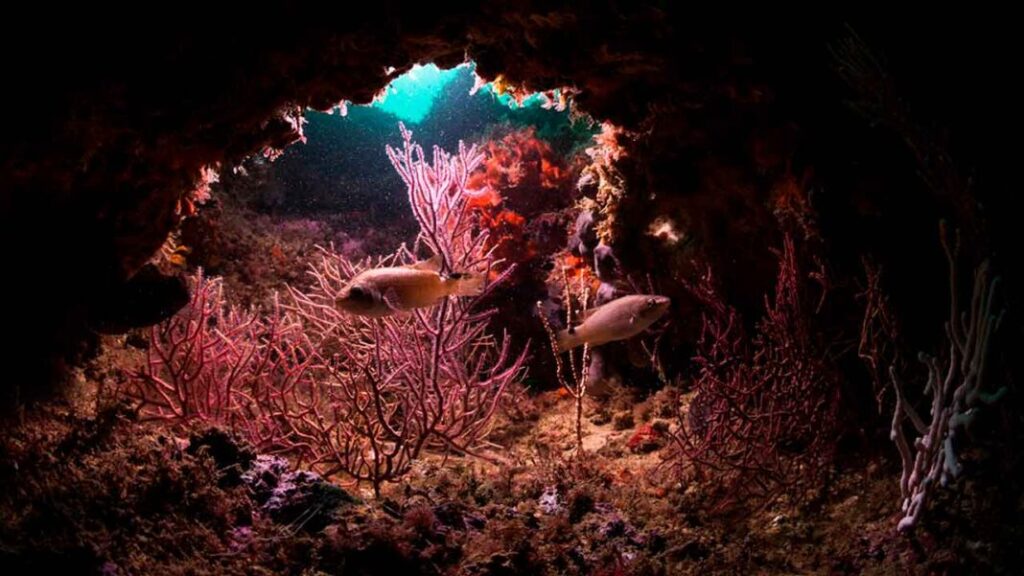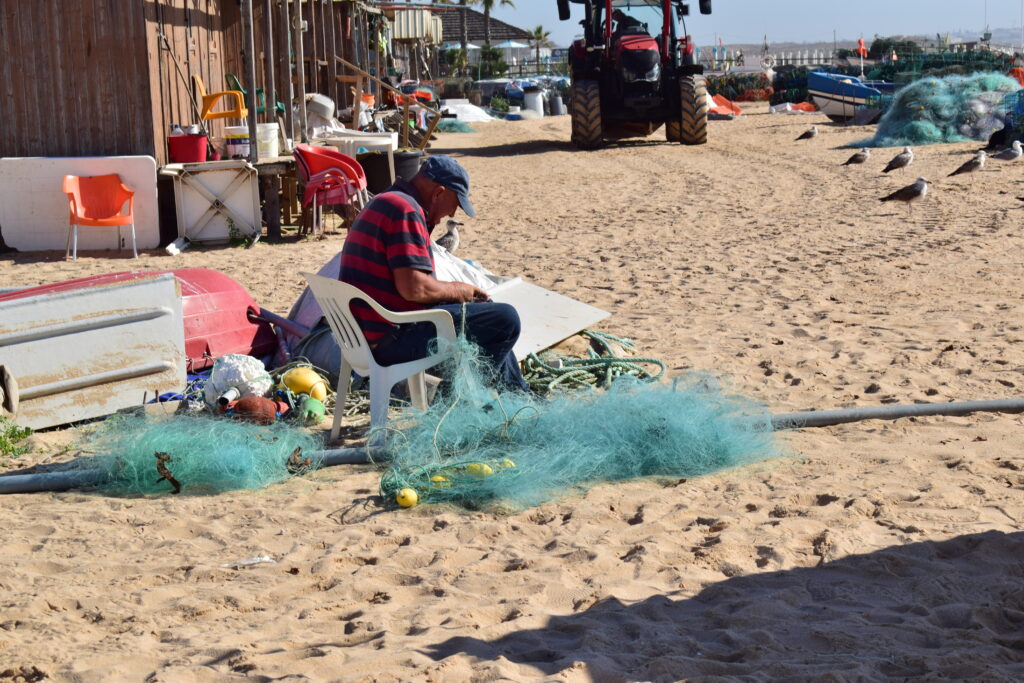The Recife do Algarve Marine Natural Park – Pedra do Valado, a marine protected area on the coast of Albufeira, Silves and Lagoa, was officially created yesterday, Thursday, November 23rd, through a resolution approved by the Council of Ministers
The proposal to create this marine park with a total area of approximately 156 km2, made by the Center for Marine Sciences (CCMAR) of the University of Algarve and the Oceano Azul Foundation, following a collaborative process involving public and private entities, is approved even earlier of the deadline set in June by the Government, which was January 2024.
In a joint statement, the Oceano Azul Foundation, CCMAR and the Municipalities of Albufeira, Lagoa and Silves, «congratulate the Portuguese Government for the approval by the Council of Ministers of the Classification Act of the Recife do Algarve Marine Natural Park – Pedra do Valado, the the country's first Marine Protected Area to be created in mainland Portugal, in the XNUMXst century».
«This Marine Protected Area of Community Interest (AMPIC) had the active involvement of the municipalities of Albufeira, Lagoa and Silves, in addition to local fishermen's associations, the hotel industry, maritime-tourist companies and non-governmental organizations, and is the result of a participatory process that involved around 80 entities, unprecedented in the country, having also recorded historic results in the public consultation prior to this Classification Act: a strong, comprehensive and heterogeneous participation, with more than 150 comments and 86 documents submitted", framed the entities signing the statement.
«The classification of a Marine Protected Area like this, in a markedly economic zone in the country, is an unequivocal sign of the national determination to protect, promote and value the Portuguese marine natural heritage, the economic activities that depend on it, as well as the prosperity of the current and future generations», they add.
This fact “is still particularly relevant for the Algarve region, which has lost a considerable part of its natural values in recent decades. This is, therefore, a decisive step to protect these values and to create conditions for a sustainable and developed economy».
«It is now necessary to move forward with the development of the Special Program to organize activities, the identification and implementation of compensatory measures for economic activities that are affected by the creation of the Marine Protected Area, as well as with measures to enhance the products and culture of these territories", they conclude.

The creation of this Marine Natural Park was highly contested by the fishermen's association Quarpesca, who strongly criticized the proposal in August.
One of the evils highlighted by the association with submitted proposal, it was the «lack of democratic spirit on the part of the project's promoters, who proclaimed consensuality and participation when they did not exist».
In response, CCMAR and the Oceano Azul Foundation recalled that there was «strong support given by society to the process of creating a new Marine Protected Area in Portugal, including the main fishing associations in the area of the new Recife do Algarve Marine Natural Park – Pedra do Valado».
On the other hand, they assured that this was a “participatory process” and that this will be the marine protected area with the “most complete set of previous studies” in Portugal.
Quarpesca criticized, however, the “absence of studies on the social, economic and even cultural impact that the implementation of this project would have”.
The association even went ahead with its own economic impact study «through consultation with the approximately 50 vessels» associated with it and which operate regularly in the Pedra do Valado area, «having reached values very close to 3 million euros annually ( the lives of many families are at stake)».
These numbers are criticized by CCMAR and Fundação Oceano Azul for being “substantially inflated”, as they are based “on an incorrect premise”.
«The value of 3 million is based on the eventuality that Quarteira vessels stop fishing in the entire Park area. This scenario is not, nor has it ever been, foreseen. In most of the area of the new Marine Natural Park (>85%), fishing activity will be allowed, especially for local artisanal fishing, which represents the majority of vessels on the Quarpesca list (>60%)", say the two entities, among other arguments.
Also highly contested by Quarpesca were the planned compensatory measures, with the association considering the formula found to be “totally unreasonable and unfair”.
Proponents of the marine protected area refute this idea, remembering that in Portugal «there is no legal obligation for the allocation of compensatory funds in the process of creating Marine Protected Areas».
«Still, and in an unprecedented action, the Government committed to establishing compensation mechanisms for fishermen. Based on a set of justice principles, CCMAR developed and proposed a formula, in collaboration with all fishing associations and DGRM, which provided the necessary information. The financial compensation model subsequently selected by the Government is based on this formula, which was not challenged by the sector in dedicated meetings (with the presence and participation of several associations, including Quarpesca)».
With the creation of the Recife do Algarve Marine Natural Park – Pedra do Valado, with a total area of 156 square kilometers (km2), from the coast to 50 meters deep, opposite the municipalities of Albufeira, Silves and Lagoa, a a no-fishing zone, with a total of 20 km2.
Of the latter, 4 km2 will be total exclusion and the remaining 16 km2 correspond to partial protection areas, which will guarantee the preservation of the reef with characteristics «unique in Portugal», which is distinguished by its rich biodiversity.
For local fishing (vessels up to 9 metres), an area of 50 km2 is reserved, and for general fishing, an area of 80,7 km2.



















Comments